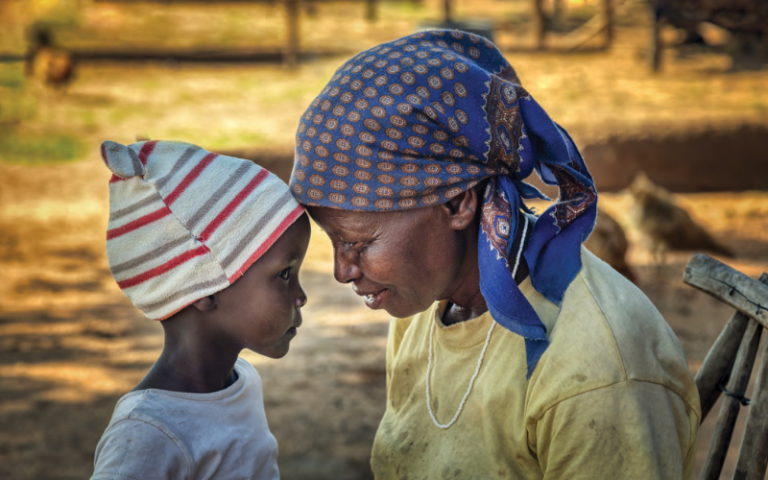Removing language barriers to empower patients with Parkinson’s disease in Sub-Saharan Africa
Dr Mie Rizig (UCL Brain Sciences) used UCL's UN SDGs: Pathways to Achievement funding to create culturally sensitive health literature about Parkinson’s disease in 12 African languages.

18 May 2022
Parkinson’s disease is a lifelong neurodegenerative condition that affects every part of the body. Symptoms can affect cognition, personality, eating, drinking and interaction with others. Understanding the condition and how it manifests itself in each particular person is crucial for managing the disease long-term. Not only must the sufferer understand the disease – relatives, their wider community and medical practitioners all need to make adjustments to adequately help manage the condition.
The understanding of Parkinson’s disease varies greatly across the world. In some cultures too, symptoms from the disease can stigmatise the sufferer. For example, some believe that abnormal bodily movements such as tremors are associated with witchcraft or deviant religious beliefs.
To address the fact that no culturally relevant information existed about Parkinson’s disease in Sub-Saharan Africa, Dr Mie Rizig collaborated on a project with Parkinson’s Africa. Together they produced the first ever materials in native languages about Parkinson’s disease in Africa.
Empowering people through health literacy
“Estimates show that people suffering from Parkinson’s disease in Europe is increasing by around 10%,” says Mie. “In Africa, the figure is around 25- 40%, because people are living longer and the population is increasing dramatically there. Yet the fact often remains that if you cannot speak English, or if you are illiterate and have no access to translation services, you will not be able to access information about the disease.”
This was the driving force for Mie to partner with Parkinson’s Africa to produce culturally relevant information about the disease. Having already led the development of an international collaboration of neurologists and neuroscientists from 12 African countries – International Parkinson’s Disease Genomics Consortium Africa (IDPGC) – this project was an important next step for Mie. The collaborators started by looking at the information being produced by Parkinson’s UK, and hosting focus group sessions with Parkinson’s patients in different countries in Sub-Saharan Africa. This consultation process enabled the team to adapt the materials and translate them into the 12 most widely used languages in the region. The materials were back-translated to English, and then translated to local languages again, to ensure the information was entirely correct. The information was also passed on to experts in the field, ensuring the guidance was relevant, up to date and reflective of good practice at the time. After this rigorous process, the information was produced in booklets and podcasts, with video material forthcoming.
“In our materials, we are very careful not to introduce foreign concepts to people,” explains Mie. “The photos and images represent the people they are aimed at, local speakers with relevant accents contributed to the podcasts, and we have been sensitive to peoples beliefs. Instead of criticising beliefs or perceptions about abnormal movements such as tremors, we have instead explained the organic mechanisms for these symptoms.”
The materials are currently being disseminated across the 12 countries, and the impact is being assessed through quality of life surveys taken by patients and their families before and after they read the materials.
“It should be a right, not a privilege, for someone to understand the mechanisms of the disease they have,” says Mie. “Health literacy needs to become part of policy to change the management of long term health conditions. The aims of the World Health Organization (WHO) and the UN Sustainable Development Goals (SDGs) cannot be achieved unless we address health literacy, especially in places where people have very poor access to information.”
Ongoing impact
Although the materials are still being disseminated and the impact is being thoroughly assessed, the team has already received promising feedback on their work. “We asked people from Parkinson’s support groups in the countries we’re working in to read the leaflets,” said Mie. “Their feedback was excellent. We had a similar response from experts who have been working in the field for a decade or more.”
This was the first ever health literacy campaign for Parkinson’s disease done in African languages. “We’re proud of the job we’ve done,” said Mie. “But this is just the beginning. We wanted to start the process, and now there are many further steps.”
As scientific knowledge about Parkinson’s disease progresses, the information will need to be updated regularly. Many of the materials are currently being accessed online, and the team wants to reach people who do not have access to the internet too. They also want to expand the network of support groups they work with.
“Longer term, we’d like to look at the cultural impact within the community,” Mie goes on to say. “We hope the perception of Parkinson’s in communities will change. The sad fact is that the number of people affected by Parkinson’s in Africa will rise significantly as the population grows, and we want to generate a better understanding before too many more people have the disease.”
The UN SDGs: Pathways to achievement funding small grants call was co-delivered by UCL Global Engagement and UCL Grand Challenges.
Links
- Resources about Parkinson’s disease, Parkinson’s Africa
- International Parkinson’s Disease Genomics Consortium Africa (IDPGC)
- Health literacy, WHO
- 11 projects awarded funding to facilitate UN SDGs
For the latest news about UCL’s international activity, partnerships and opportunities, subscribe to the bimonthly Global Update newsletter.
 Close
Close

